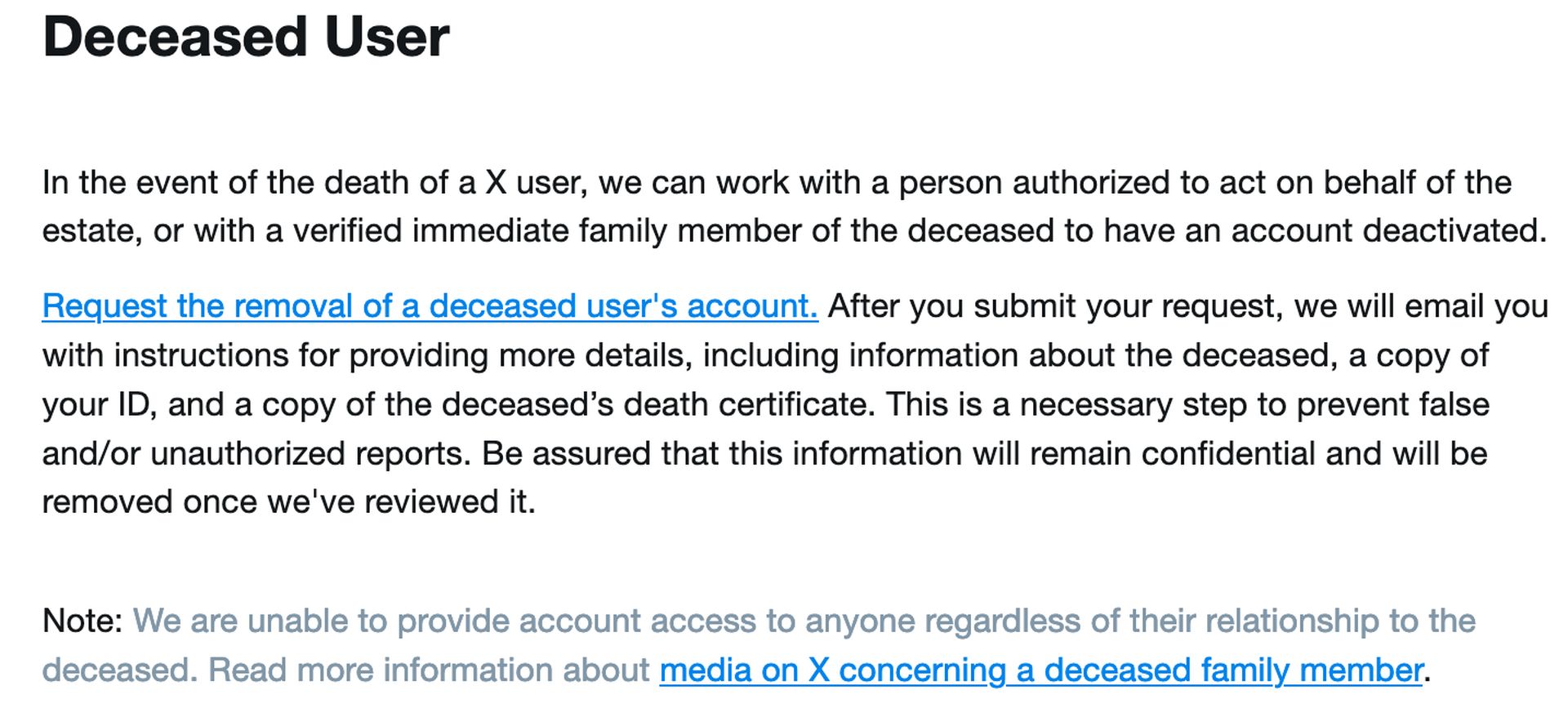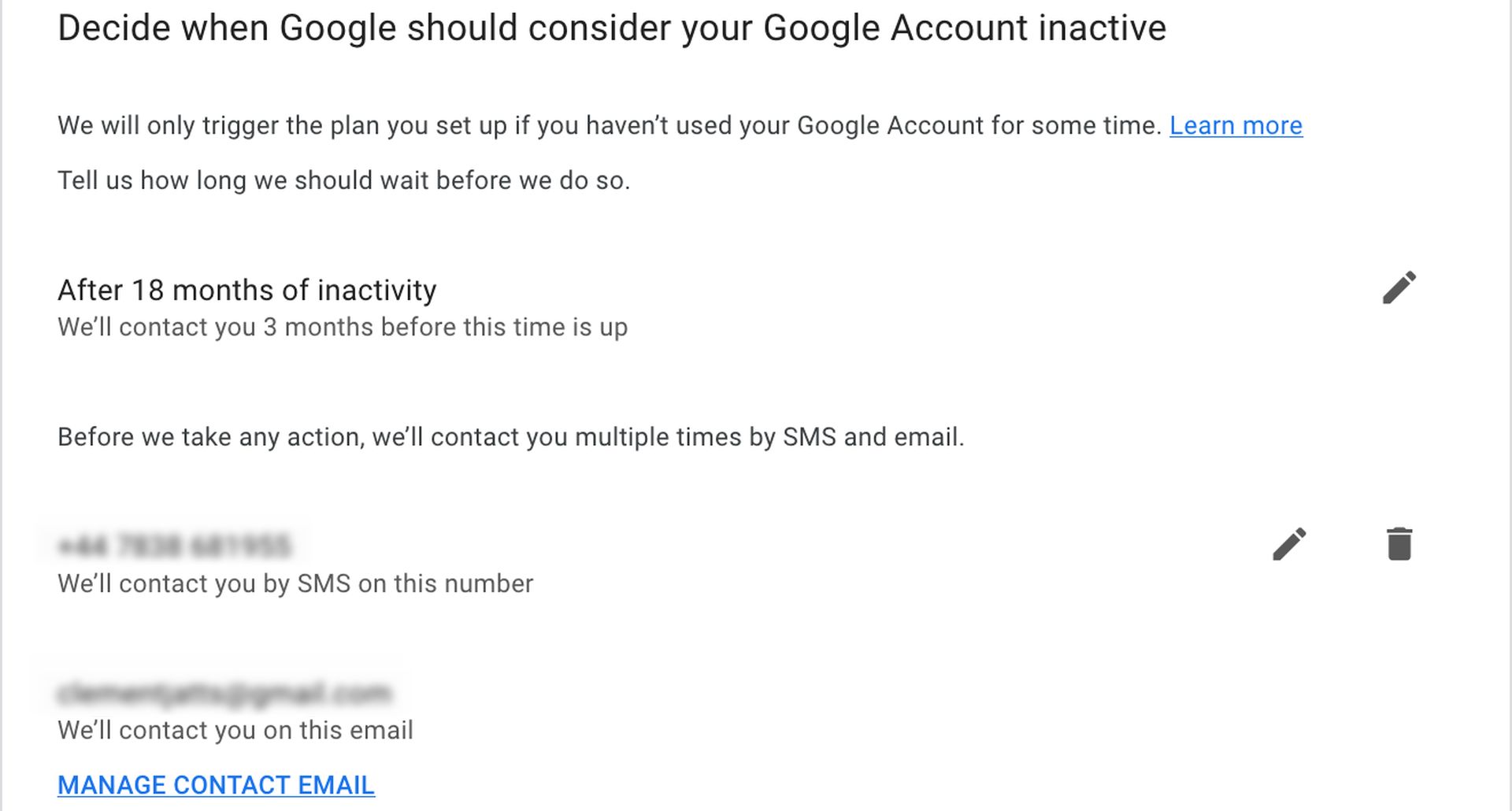The number of accounts belonging to deceased social media users is rapidly increasing on each social media platform every day. The growth is so significant that the deceased users are projected to outnumber the living ones in the next few decades. We’ll explore deceased accounts by social media platforms to have a deeper look at the ‘digital graveyards’.
For context, a digital graveyard is a social media platform where deceased users are more than the living ones. Facebook is expected to be the first one very soon as the platform boasts over 3 billion users as of April 2024 and many of them will pass away in the coming years.
Instagram, TikTok, and X (formerly known as Twitter) are the other major social media platforms that are bound to become digital graveyards with time. According to ExpressVPN, deceased users will outnumber living ones on these social media platforms.
How many deceased social media users are there?
There are almost 5 billion social media users in the world as of April 2024, which represents around 61.47% of the global population. However, there is no credible study confirming the number of deceased social media users worldwide right now.
Facebook had an estimated 30 million deceased users in the first ten years of its existence where it reached nearly 1.39 billion users. This means that 2.15% of the total Facebook users in 2014 back then were dead. However, this rate would be significantly high by now considering that only young people formed the majority of the social media site’s user base back then.
Even with the same ratio of deceased users to living ones, there would be almost 107 million deceased social media users right now.
Deceased social media users on Facebook
In the U.S., the country with the largest social media user base, Facebook is estimated to have 63.9 million deceased accounts by 2025 and 278.6 million deceased users by 2100. The country is also expected to have around 659 million deceased users across all social media platforms.
This figure is nearly double that of the projected population of the U.S. for the year 2100, which is 336 million. Social media penetration has always been very high in the U.S. and is anticipated to continue in the coming years. More Facebook users will eventually lead to more legacy users.
Another research by XKCD estimates that Facebook’s deceased users would outnumber the living ones by 2065. The social networking site is also expected to be the biggest ‘digital graveyard’ by 2100 due to its massive user base.
Deceased social media users on Instagram
Instagram, another social media platform owned by Meta, is expected to have a similar fate as its sister-site Facebook. It is the fastest-growing social media platform in recent years with a growth rate of a whopping 47.8% from 2020 to 2022.
Its user base is expected to grow at 17.2% till 2027 which would extend the user count to 1.56 billion. This would roughly make up a fifth of the world’s total social media users by then. The high number of active users would also lead to a large number of deceased users by 2100.
Instagram will have around 25.2 million deceased users by 2025 and then 158.7 million deceased users by 2100 in the U.S. It will be the second biggest digital graveyard, after Facebook.
Deceased social media users on TikTok
TikTok is another rapidly growing social media platform and is slated to become the fastest-growing one, leaving Instagram behind, in the next few years. This confirms that it is also bound to have more deceased users than the living ones in the coming decades.
By 2025, TikTok is estimated to have 18.3 million deceased users in the U.S. and the number will grow to 64.9 million by 2050. Eventually, TikTok will become the third-biggest digital graveyard with nearly 126.5 million deceased accounts by 2100.
Deceased social media users on X (Twitter)
Finally, X (formerly called Twitter) is another social media platform on the verge of becoming a digital graveyard by the next century. X will have around 20.3 million deceased social media accounts by 2025 and the number will grow to 61.1 million by 2050.
By 2100, X will have around 94.9 million users who have passed away. This figure is relatively lower than other social media platforms due to the slowed growth of X after the ownership changed in 2022 and its policy to delete the accounts of deceased users.

How different social media platforms handle deceased users?
Different social media platforms have varying methods of managing the accounts of users who have left this world. For instance, Facebook introduced a feature to memorialize the account in 2009 while X and TikTok require the deceased’s loved ones to request their account deletion.
Here is what happens to your account after you die on major social media platforms such as Facebook, Instagram, TikTok, and others:
Facebook offers two main options for accounts of deceased users- Memorialization and Deletion.
(i) Memorialization: This account becomes a space for friends and family to gather and share memories related to the deceased. It is marked with the ‘Remembering’ tag which appears next to the name and doesn’t appear in public spaces like user suggestions.
You can add a ‘Legacy Contact’ from settings while you’re alive and they can manage your account posthumously when it’s memorialized.
(ii) Deletion: Facebook also allows users to delete their accounts after their death which ensures that all the data including your posts and photos are permanently removed from the website’s servers once they are notified about your passing.

Instagram, since it’s owned by Meta (the company that owns Facebook), provides similar options to accounts of deceased users. There is an option to either memorialize the account or request for its deletion once a user has passed away.
Memorialized accounts have the ‘Remembering’ tag next to the user’s name and preserve their digital presence to friends and family. They can see the user’s past posts and activity but the profile will be removed from public spaces like the ‘Explore’ tab and friend suggestions.
However, there is no way to pre-select your ‘Legacy Contact’ on Instagram but the procedure requires your loved ones to contact Instagram and then initiate memorialization.
Deletion is another option that also requires your close family member to contact Instagram and request to remove your user data from the website. This procedure requires submitting proof of authority such as a birth certificate, power of attorney, etc, and proof of the user’s passing.
TikTok
TikTok doesn’t have a feature for deceased users to memorialize their accounts (yet) and the only option is to request its deletion by a loved one. Once the user has passed away, a family member of a legal representative can contact TikTok support with a death certificate to get the account deleted from the platform.
If no one does that, your account will remain on the platform as it was when you were alive. If you want someone to manage your account after your death, you can share your credentials with a trusted person such as a close friend or a family member before your passing.
X (Twitter)
X is known to have a varying stance on deceased users as it previously allowed such accounts to stay dormant on the platform. However, it has started deleting accounts with no activity after Elon Musk took over and introduced crucial changes.
As of April 2024, X doesn’t allow a feature to memorialize an account and keep it on the platform posthumously. It has also reduced the inactivity period from 6 months to 30 days when an account is deleted, a decision which numerous X users highly criticized.

X has a policy of not providing account access to anyone regardless of their relationship to the deceased. If you want your X account to stay on the platform, you should share the username and password with a trusted person who will manage it after your passing.
YouTube
Google offers a tool named ‘Inactive Account Manager’ for YouTube users to decide what happens to their account after their death. You can set it up to notify trusted contacts or delete your account after three, six, twelve, or eighteen months of inactivity.
However, if you don’t set it up, your family members and legal representatives can request account closure on your behalf by submitting necessary documentation such as a death certificate, obituary, etc.

Final take
Major social media platforms are bound to become ‘digital graveyards’ as number of deceased accounts continue to rise. The accounts belonging to users who have passed away will definitely surpass the living ones unless platforms introduce strict policies such as X.
However, the decision can also backfire as users have emotional value linked to the memorialization of accounts and prefer having the deceased’s profile on the platform. It’ll be interesting to see how companies will handle deceased user accounts in the coming days.
Featured image credit: Freepik





